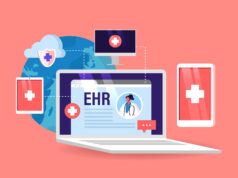
States continue to loosen Covid-19 restrictions, patients return to routine healthcare, and vaccination numbers remain on the rise. It is becoming increasingly clear that we have turned the corner on the pandemic. Healthcare leaders all acknowledge that Covid-19 has fundamentally changed healthcare, but how will care delivery models evolve? What does the future of healthcare look like?
Some healthcare leaders might point to the rise of new technology like telehealth to deliver care virtually, others will reflect on new models like value-based care that have taken center stage. One key change that has not received the same level of attention but that is, in many ways, just as important is the rise of the expanded care team. We are at long last moving beyond the point where having a concierge level of care was reserved for the wealthy. The pandemic has ushered in a new era of technology-enabled healthcare that supports patients more holistically, whether inside or outside of the doctor’s office.
A patient’s healthcare “team” is growing, and below are some of the new players that will be supporting patients in the post-Covid-19 world:
Care Managers: The Quarterback of the Patient’s Health Journey
Have you scheduled your vaccine appointment? Picked up your prescription refill? More than ever, patients are receiving personal calls and messages from care managers to assess status, assure medication adherence, design care plans, provide education, and help facilitate follow up care visits. In fact, between 2019 and 2020, calls between care managers and patients increased by nearly 70% according to VirtualHealth data. Care managers empower patients to navigate the healthcare system more effectively, ensuring equal access and supporting compliance with prescribed activities and interventions.
While not new to the healthcare scene, care managers’ vital role has grown greatly during the pandemic. As payers and providers move toward value-based care models and proactive healthcare, patients and members are getting more familiar with having a partner in their healthcare journey. Rather than waiting for patients to use the healthcare system at the point emergent care is needed, care managers proactively reach out to patients to prevent adverse healthcare events. For example, if a patient is due for an annual check-up, a care manager might reach out to help the patient schedule the appointment, while also coordinating a rideshare service to assist with transportation.
Community Resources: The Non-Clinical Patient Support
While care managers may be considered the quarterback of the expanded healthcare team, the community resources are the deep bench that extend beyond the doctor’s office. As non-clinical factors determine up to 80% of a patient’s health, it is essential that care managers direct patients to community resources that support their socioeconomic, behavioral, and daily living needs.
Community resources, ranging from food banks to social work to transportation to housing support to behavioral counseling, are becoming an increasingly essential component of a patient’s care plan. Consider the Covid-19 vaccine distribution underway. Patients in rural areas might not have access to mass vaccination sites, or have reliable transportation to travel to distant pharmacies for a shot. Community resources are filling this gap by bringing the vaccines to patients. In fact, as part of the American Rescue Plan, the U.S. Department of Health and Services has allocated $1 billion to support vaccine education and distribution and expand Covid-19 testing in rural communities by partnering with local community and health organizations. A care manager can easily determine what resources are readily available for a given member, schedule the transportation to a vaccination site or the visit to the member’s home, and make sure that member gets vaccinated.
Behavioral Health Professionals: Connecting Care for the Mind and Body
According to the Centers for Disease Control and Prevention, between April 2020 and February 2021 38% of adults in the U.S. had symptoms of anxiety of depression, whereas, between January and June 2019, only 11% of adults reported symptoms. There is a clear need for quality and affordable behavioral health support that will continue beyond the pandemic as the nation recovers.
Since the pandemic began, we have seen a rise in virtual mental health mobile apps and resources to help patients get access to mental health care from the comfort of their homes. While these online therapy tools help meet a vital need, it is critical that these solutions communicate with the rest of the healthcare system so that primary care doctors and care managers are equipped with a 360-degree view of a patient’s health. Care management technology can bring these silos together so patients can receive proactive clinical and behavioral health support they need.
A Health Tech Innovator’s Responsibility to Support Care Teams
As industry leaders envision what healthcare of the future looks like, we see a critical role for care managers, community resources and mental health professionals. Since 2019, we have observed a 34% rise in the frequency of interdisciplinary care team meetings among care providers and care managers with multiple specialties, and we expect this trend to continue. Each of these healthcare players provide a crucial role to deliver a more equitable and proactive care experience for patients, especially our most vulnerable communities. As tech innovators, we must continue to deliver technology solutions that provide seamless experiences for these healthcare heroes.
Photo: alphaspirit, Getty Images








